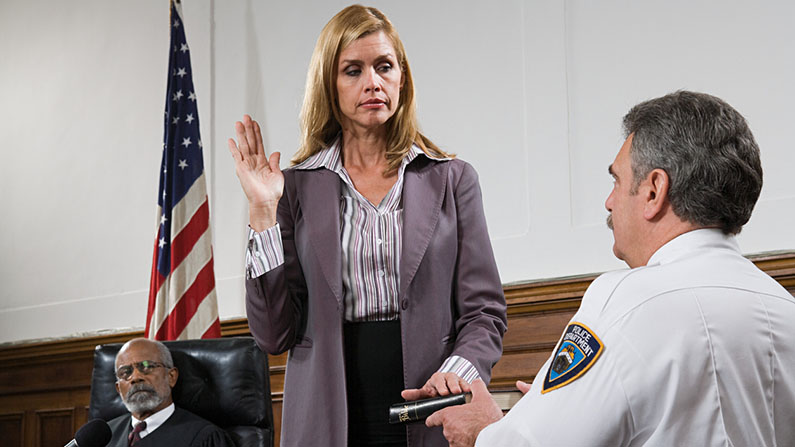A victim is often asked to testify when a case against an alleged criminal defendant goes to court. The idea of testifying as a witness in criminal court can feel overwhelming or frightening to some survivors of violent crime. Everyone responds to publicly sharing their trauma in their own way, and it is perfectly normal to feel scared about testifying. Learning more about what to expect at a criminal trial can make the process feel easier.
Who will you be talking to?
When you testify during a trial, you will be asked to answer a lawyer’s questions under oath in front of a jury and judge.
To make this process easier, it might help to understand the role of the different people in a criminal trial.
- Defense attorney: This attorney represents the alleged criminal. When you are on the stand, it can feel like this attorney is always “against” you. It is important to remember that the lawyer is merely doing their job, and if you can, try not to take what they are saying personally.
- Prosecuting attorney: This attorney represents the state against the alleged criminal, and they are responsible for arguing that the court should convict the person of a crime. Although it can feel like this attorney is on your “side,” it is essential to remember that they do not represent you (or your personal interests).
- Witnesses: The role of a witness during a criminal trial is to answer all the questions that the lawyers or the judge might ask. It is vital to answer all the questions you are asked truthfully. This can feel limiting because you can only share evidence that you are asked about; however, survivors are often asked to provide a victim impact statement where they can describe how the crime has affected their lives.
What are some courtroom logistics?
There are some logistics you should consider before arriving at court proceedings. Here are some of the most common logistics to consider:
- See if there is a designated victim or witness waiting area.
- Remember you are considered a witness in the trial, so it is possible that you will not be allowed in the courtroom until a specific time.
- Pack water, snacks, and something to keep you occupied, like video games or a book, since you may be waiting for long periods.
- Discuss safety concerns with the court and legal team because they may be able to arrange protective measures if necessary.

